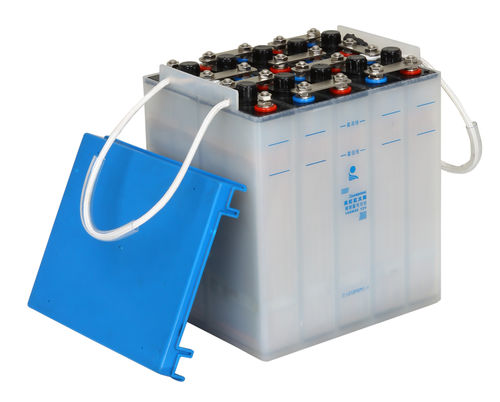NiCd batteries offer many advantages, but like all batteries, they require careful handling and usage to ensure safety. This article outlines safety precautions for installing, operating, and maintaining NiCd batteries.
1. Handling Precautions
- Personal protective equipment (PPE): Always wear safety gloves and goggles when handling NiCd batteries to prevent contact with the electrolyte, which can be caustic.
- Avoid short circuits: Never allow metal tools to touch both the positive and negative terminals at the same time, as this can cause a dangerous short circuit.
- Lift carefully: NiCd batteries are heavy. Always lift them with proper equipment to avoid injury.
2. Installation Safety
- Room ventilation: NiCd batteries emit gases, particularly hydrogen, during charging. Ensure the installation room is well-ventilated to prevent the buildup of explosive gases.
- Fire hazards: Keep fire extinguishers nearby that are rated for electrical and chemical fires. Avoid placing batteries near heat sources or in direct sunlight.
- Proper storage: Store NiCd batteries in a cool, dry place before installation to minimize the risk of electrolyte leakage or cell damage.
3. Charging Safety
- Use a proper charger: Always use a charger designed for NiCd batteries to avoid overcharging, which can result in excessive heat and gas production.
- Monitor temperature: During charging, monitor the temperature of the battery. If the temperature rises above 40°C, stop charging and allow the battery to cool down.
- Avoid overcharging: NiCd batteries can tolerate some overcharge, but excessive overcharging can damage the battery and cause electrolyte leaks.
4. Maintenance and Disposal
- Regular inspection: Periodically inspect the batteries for signs of damage or electrolyte leakage. If any cells are damaged, replace them immediately.
- Recycling: NiCd batteries contain cadmium, a toxic heavy metal. At the end of their lifecycle, dispose of them according to local hazardous waste disposal regulations.


